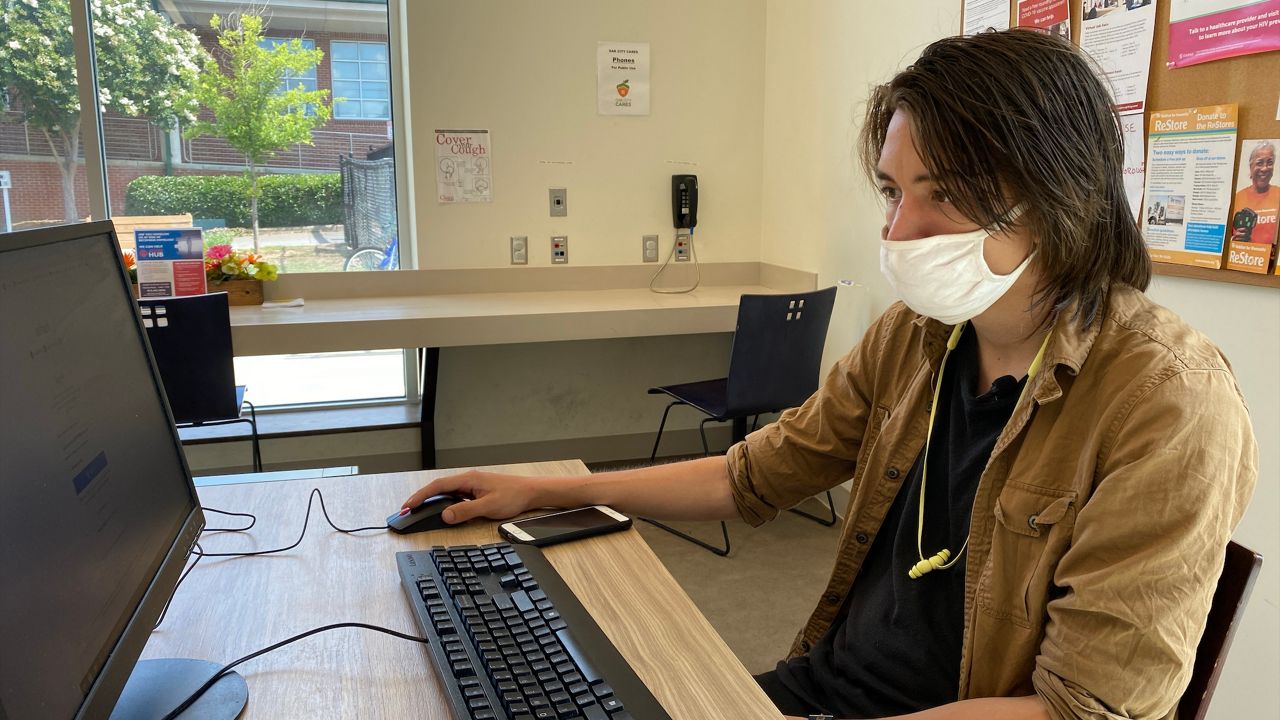RALEIGH, N.C — A man experiencing homelessness said the suspension of bus fares has made it much easier to reach the services he needs.
What You Need To Know
The Raleigh City Council voted last month to extend GoRaleigh's fare suspension through June of 2022
Funding for now will come from federal COVID relief
Officials are considering whether and how to make fare-free transit permanent
Chapel Hill already has a free transit system
Tony Salazar doesn't have a permanent place to live, so he said he typically alternates between sleeping outside and staying at a friend's home in Cary. No matter where he sleeps, Salazar still has to be able to access programs and services made available to those experiencing homelessness.
“There are some days where, if I want to go do something and I run into some people, my days get changed,” he said. “That's the good thing about the buses being free. Even if it changes, I can still ride the bus where I need to go to without worrying about the fare.”
GoRaleigh suspended fares last spring in response to the COVID-19 pandemic. This resulted in part from a decision to have passengers board at the rear doors to encourage physical distancing and to protect drivers. The rear doors are not equipped with devices to collect fares. In late June, GoRaleigh, along with GoCary, GoDurham and GoTriangle, announced it would keep bus fares suspended through June 30, 2022.
Salazar said this has been a big help for him. Every day he rides the bus to the day shelter at Oak City Cares, where he can take a shower, do laundry, pick up meal tokens and check his email for responses to his job applications. This generally requires two bus rides each way. Before the pandemic, he would buy a weekly pass to maximize the number of trips he could take. Those passes run $12 each, and he said that adds up after a while if you don't have steady income.

“You never know when you might need the next pair of socks,” he said. “You might not stop by here again until next time.”
The decision to suspend fares might become permanent. City council member Corey Branch said the city and GoRaleigh are looking into ways to fund the bus system without relying on fares. He said GoRaleigh makes about $3 million a year in fare collections, so the city will have to figure out a way to replace that revenue if the free transit idea moves forward.
“There's property tax, maybe money from sales tax, fees, grants, looking at money coming from the federal government,” he said. “We're going to look at all possible options.”
Raleigh would not be the first city in North Carolina to go fare-free. Chapel Hill's public transit system, which serves Chapel Hill, Carrboro and the UNC-Chapel Hill campus, has been free since 2002. The two towns and the UNC campus share the costs.
Salazar said even after he finds a permanent job, he still will need to be able to get to it. He said he's not looking forward to having to pay a fare again just to get to a shower, so he hopes city leaders find a way to keep the buses free after the pandemic is over.



